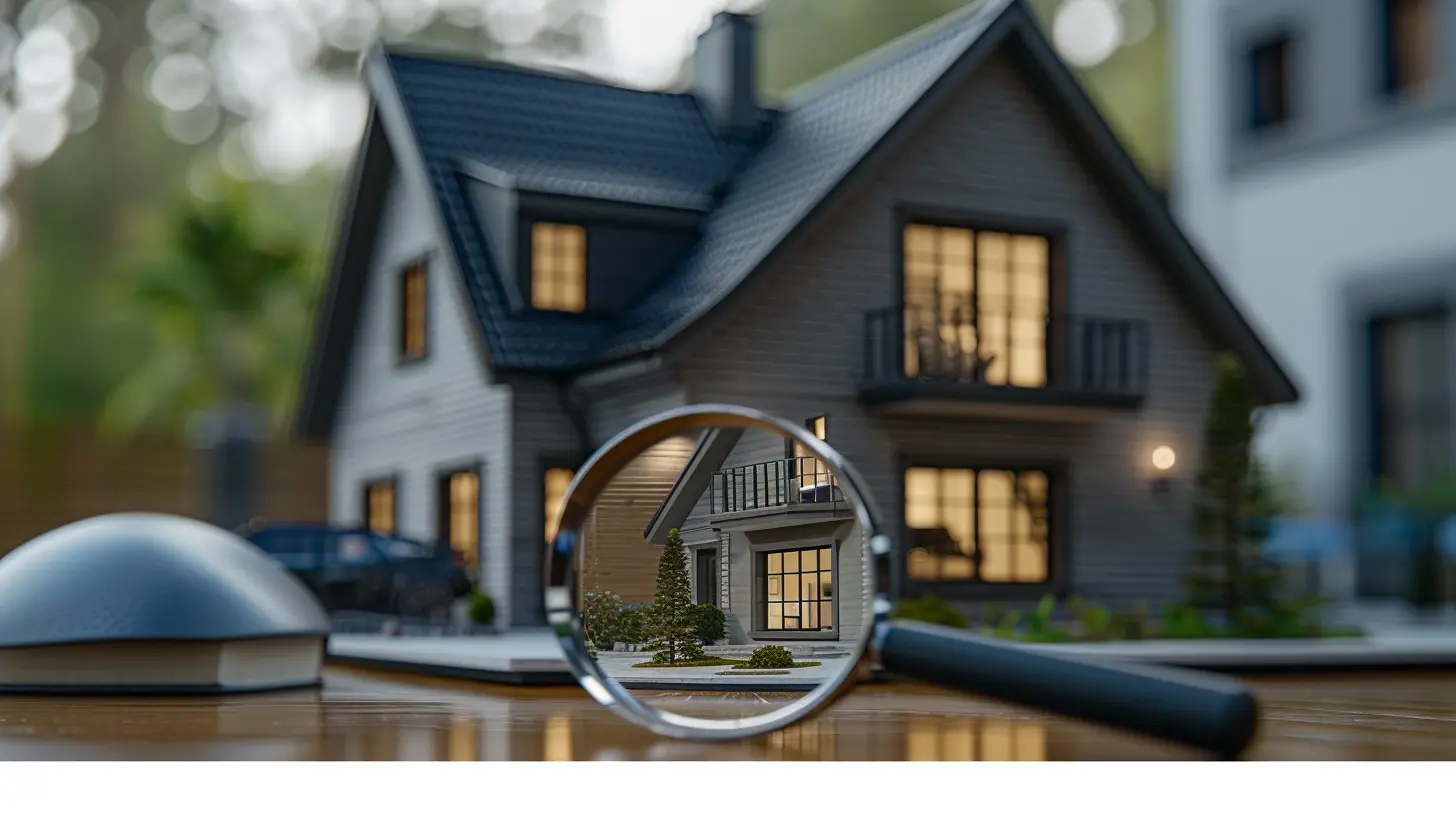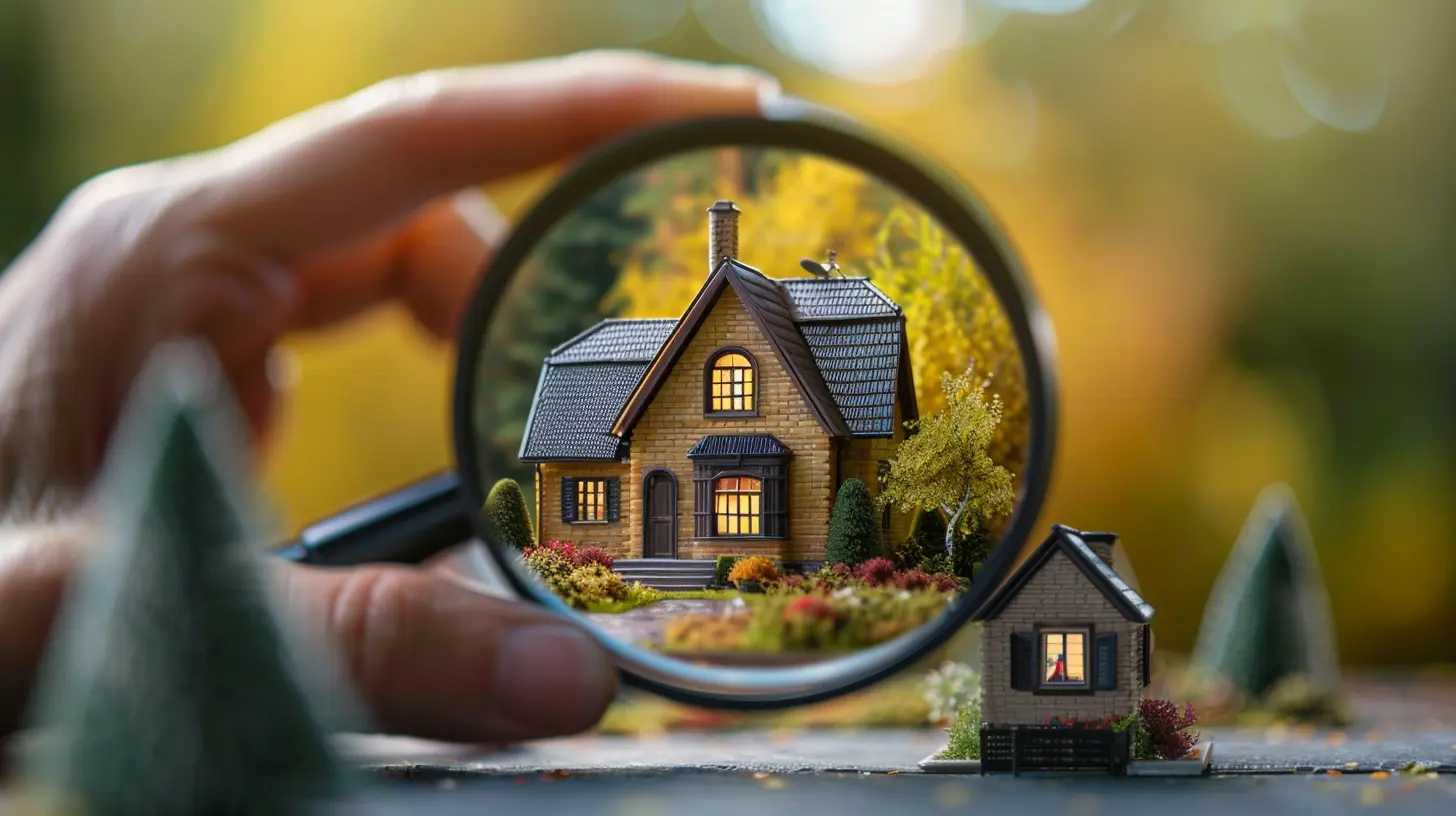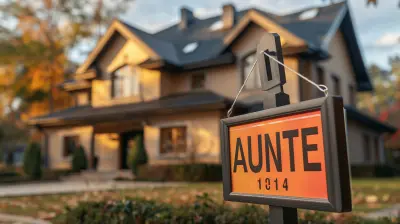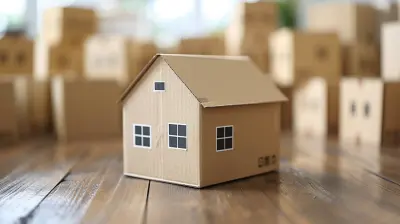The Connection Between Home Inspections and Homeowner Insurance
24 April 2025
Let’s face it—buying a home is one of the biggest decisions of your life. It’s equal parts exciting and nerve-wracking. If you’re anything like me, you want to avoid surprises, especially the expensive kind. And that’s where home inspections and homeowner insurance come into play. These two are like the Batman and Robin of homeownership—they protect your investment and your peace of mind. But have you ever wondered how they’re connected? Let’s break it down in plain English. 
What’s the Deal with Home Inspections?
First things first, what exactly is a home inspection? Think of it as a full-body check-up for your house. A professional inspector goes through your property with a fine-tooth comb, looking for issues like a leaky roof, electrical problems, plumbing issues, or even cracks in the foundation. These inspections are a must, especially if you’re buying a home.It’s not just about finding flaws; it’s about understanding what you’re getting yourself into. Nobody wants to move into their dream home only to find out the basement floods every time it rains. 
Why Is Homeowner Insurance Non-Negotiable?
Now, let’s talk about homeowner insurance. It’s your financial safety net in case something goes wrong—like a fire, a burglary, or Mother Nature throwing a tantrum. Banks won’t even give you a mortgage without it. It’s that important.But here’s the kicker: homeowner insurance doesn’t cover everything. For example, if your roof collapses because it was old and neglected, your insurance might not pay up. And you know what they’ll look at to figure out the condition of your home? You guessed it—your home inspection report. 
The Link Between Home Inspections and Homeowner Insurance
So, how exactly are home inspections and homeowner insurance connected? It’s simple. Your home inspection report gives insurance providers a snapshot of your home’s condition. It helps them assess risk—and when it comes to insurance, risk is everything.Think of it this way: If your home is like a car, the inspection is the equivalent of checking under the hood before buying it. Would you buy a used car without knowing if the engine’s about to give out? Probably not. Home inspections work the same way, and insurance companies use that info to determine your coverage and premiums. 
Key Areas Insurance Companies Care About After a Home Inspection
Let’s zoom in on what insurers are mostly interested in when reviewing your inspection report.1. The Roof
Your roof is your home’s first line of defense against the elements. If your inspection report says your roof is old or damaged, insurance companies either won’t cover it or will jack up your premium. Why? Because a leaky roof can lead to water damage, mold, and a whole heap of other problems.2. The Electrical System
Faulty wiring is pretty much a fire hazard waiting to happen, and insurers are all about reducing fire risk. If your inspection uncovers outdated or unsafe electrical work, it’s game over until you fix it.3. Plumbing
Nobody wants to deal with a burst pipe or water damage. Insurers will look to see if your plumbing system is in good shape. If the pipes are old and corroded or your water heater is on its last leg, don’t be surprised if your premium goes up.4. Foundation and Structure
Cracks in the foundation or structural issues are red flags. Not only are they expensive to fix, but they can also make your home unsafe. And if your home isn’t safe, your insurance company will see it as a higher risk.5. Heating and Cooling Systems
An old furnace or an ancient A/C unit can be a dealbreaker. These systems can pose safety risks, and if they’re inefficient or unreliable, insurers might hesitate to cover them.6. Hazards and Safety Risks
Anything from mold to asbestos to missing handrails can affect your homeowner insurance. Insurers are all about reducing liability, so if your home has safety risks, you’ll want to address them ASAP.How a Bad Inspection Can Affect Your Insurance
Here’s the harsh truth: a bad inspection can absolutely mess with your insurance situation.- Higher Premiums: If your home is deemed high-risk based on the inspection, you’ll end up paying more for insurance.
- Coverage Denial: In worst-case scenarios, the insurer might refuse to cover certain parts of your home (or the entire property) until you fix the issues.
- Policy Cancellations: Even if you get insured initially, a post-claim inspection that reveals hidden issues could lead to a policy cancellation.
Can a Pre-Inspection Save the Day?
If you’re selling your home, getting a pre-inspection before putting it on the market can be a game-changer. It’s like giving your home a clean bill of health—or at least fixing what’s wrong before the buyer’s inspector swoops in. Not only does this make your home more attractive to buyers, but it also reassures insurance companies that the property is in good shape.Tips to Keep Insurance Costs in Check
No one wants to pay more for insurance than they have to. The good news is, you can take steps to keep your premiums reasonable.1. Fix the Big Stuff: Get ahead of potential red flags in your home inspection. It might cost you upfront, but it’ll save you in the long run.
2. Shop Around: Don’t settle for the first insurance quote you get. Compare policies to find the best coverage for your money.
3. Ask About Discounts: Some insurers offer discounts for things like installing a new roof or upgrading your home’s electrical system.
4. Bundle Policies: Got auto insurance? Bundling it with your homeowner insurance could save you some cash.
Final Thoughts
At the end of the day, home inspections and homeowner insurance go hand in hand. The inspection gives you a detailed snapshot of your home’s condition, so you know what you’re walking into. And for insurance companies, that same report is their crystal ball for predicting the potential risks of insuring your home.While it’s tempting to cut corners during the home-buying process (because let’s be honest, it’s expensive), skipping a home inspection or ignoring its findings is a huge gamble. Protecting your investment is what homeowner insurance is for, but it all starts with knowing the ins and outs of your property.
So, if you’re in the market for a new home—or if you’re trying to sell one—remember this: a good home inspection isn’t just about peace of mind; it’s your golden ticket to a smoother insurance process and, potentially, lower premiums.
all images in this post were generated using AI tools
Category:
Home InspectionsAuthor:

Lydia Hodge
Discussion
rate this article
6 comments
Veronica Soto
Understanding home inspections can significantly impact homeowner insurance choices, ensuring both protection and peace of mind in ownership.
May 4, 2025 at 11:35 AM

Lydia Hodge
Absolutely! Home inspections provide valuable insights that help homeowners make informed insurance decisions, ultimately enhancing their coverage and peace of mind.
Azurael McDonald
Inspect before you insure!
April 28, 2025 at 10:44 AM

Lydia Hodge
Absolutely, inspecting your home before getting insurance ensures you understand its condition and helps avoid unexpected costs later.
Otto Sawyer
Oh, because nothing says “welcome home” like a thorough inspection and an insurance policy! Who wouldn't want to invite a stranger to poke around their house before moving in?
April 27, 2025 at 6:41 PM

Lydia Hodge
I understand your concern! Home inspections and insurance policies are crucial steps to ensure safety and protection in your new home. They might seem intrusive, but they ultimately provide peace of mind.
Logan McKinstry
Great insights on the interplay between home inspections and homeowner insurance! Understanding this connection is crucial for homeowners to protect their investments. Thank you for shedding light on such an important topic in real estate!
April 25, 2025 at 12:42 PM

Lydia Hodge
Thank you for your thoughtful comment! I'm glad you found the insights valuable for protecting homeowners' investments.
Mara Riley
Secure your future: inspections empower informed homeowner insurance choices!
April 25, 2025 at 3:26 AM

Lydia Hodge
Thank you! Indeed, home inspections provide crucial insights that help homeowners make informed insurance decisions, ultimately securing their future.
Sloane Warner
This article provides valuable insights into the essential link between home inspections and homeowner insurance. Understanding this relationship can significantly impact both property value and protection. Thank you for shedding light on such an important topic for prospective homeowners!
April 24, 2025 at 12:42 PM

Lydia Hodge
Thank you for your thoughtful comment! I'm glad you found the article helpful in understanding this important connection.




